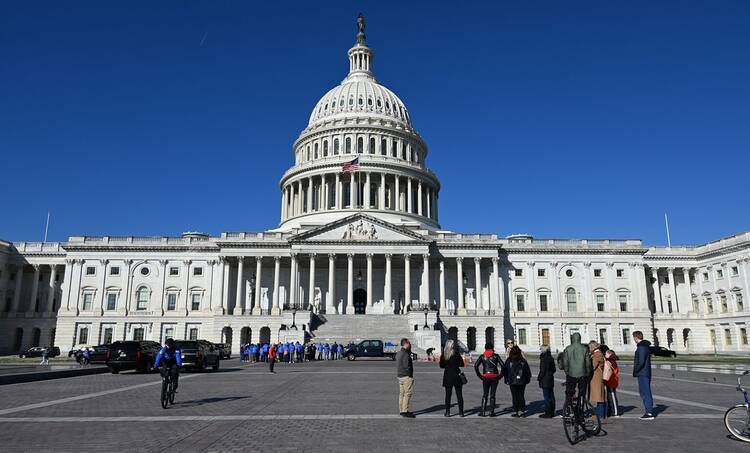(RNS) — It’s fair to say that when the results of presidential election are challenged by violence, politics in the United States have become dysfunctional. The fact is, that’s been so for a while: Congress has been gridlocked for years, incapable of passing even the legislation necessary for the federal budget.
Things are so desperate that it’s possible that America could learn something about democracy from the Catholic Church.
This is certainly counterintuitive, since the Catholic Church is by nature hierarchical. Popes and bishops repeatedly tell us that the church is not a democracy. Nevertheless, the church has held votes in ecumenical councils, synods and episcopal conferences and has held elections to choose its bishops in centuries past and still does for popes and the heads of religious orders.
Historically, the political rulers of Europe were chosen according to primogeniture, whereby the firstborn legitimate son inherited all his father’s property and power. This system kept kingdoms from falling into civil war every time a ruler died. With a celibate clergy, there were no legitimate heirs to whom to pass the baton. Church leaders were often chosen through elections by the people or clergy. For the papacy, the College of Cardinals served as the electoral body.
The drafters of the U.S. Constitution proposed something similar when they established the Electoral College to choose the U.S. president. According to William C. Kimberling:
“The function of the College of Electors in choosing the president can be likened to that in the Roman Catholic Church of the College of Cardinals selecting the Pope. The original idea was for the most knowledgeable and informed individuals from each State to select the president based solely on merit and without regard to State of origin or political party.”
Partisan politics eventually killed the idea of geographical and political neutrality. Electors became pledged to their party’s candidate and rarely broke ranks. We’re unlikely to ever return to the Electoral College as it was proposed by the drafters.
On the other hand, Congress could learn something from the way cardinals elect popes in conclaves.
The Catholic Church in the past has experienced periods when the cardinals, like Congress, were so divided that they could not do their job. In the 13th century, the papacy was vacant for a year and a half before the election of Pope Innocent IV and for three and a half years before the installation of Pope Gregory X.
In both cases, the people got angry and revolted. They locked up the cardinals until a pope was chosen; thus came the word “conclave,” which means “locked with a key.”
In 1271, the people not only locked up the cardinals, they also tore the roof off the building and put the cardinals on a diet of bread and water until they had a pope. That was how the voice of the people was expressed in the 13th century.
Today, cardinals are still locked in the conclave in the Sistine Chapel in the Vatican, with no phones or contact with the outside world.
Can Americans apply this 13th-century model to congressional politics?
If Congress failed to pass a budget on time, could we lock members in the U.S. Capitol, take away their phones and internet and put them on bread and water until they passed a budget? No communication with the outside world, no visits to their home districts, no pay and no fundraising until a budget was hammered out and approved. This would focus the attention of members concerned about their reelections.
A conclave is like a filibuster in reverse. Instead of forcing Congress to do nothing, a conclave would force members of Congress to do their job.
This makes a lot more sense than having a government shutdown that harms citizens, government workers and the economy while the real culprits twiddle their thumbs. The next time there is gridlock on Capitol Hill, let’s have a conclave. Lock them up.








